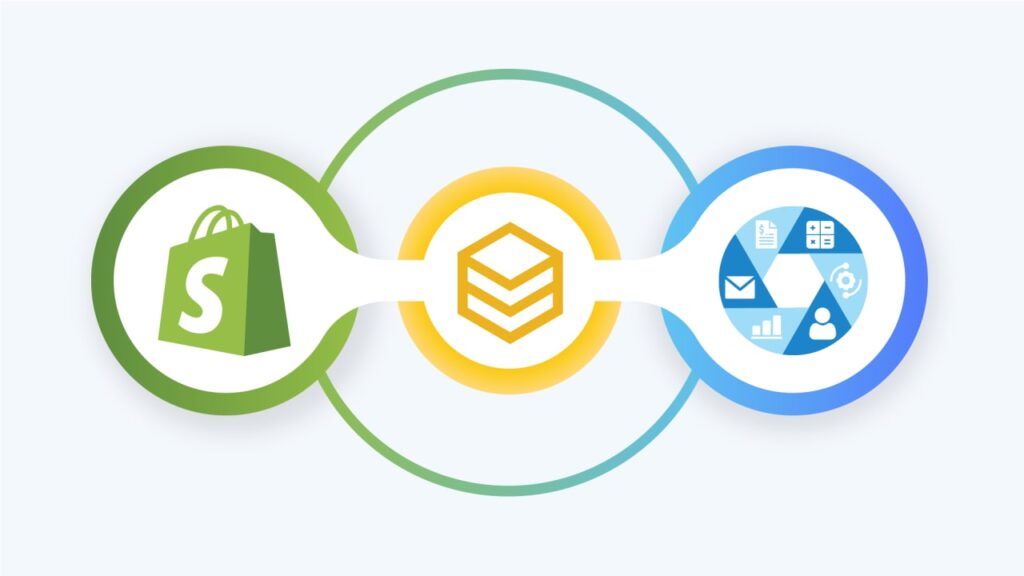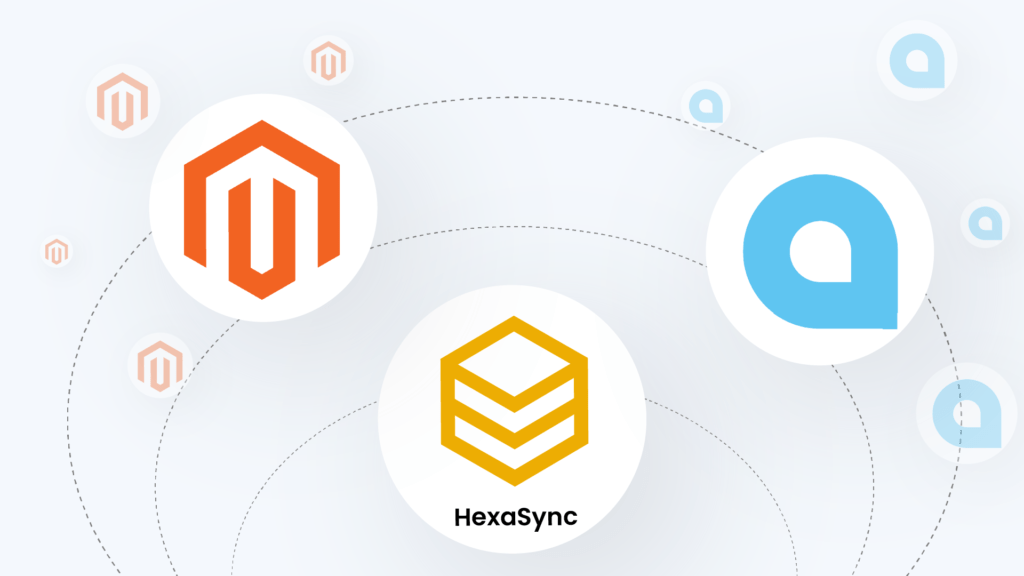Are you thinking about implementing a Magento 2 ERP integration project but do not know what you should prepare beforehand? It might be a big project which costs you lots of time and money. That is the reason why you should have a well-prepared plan in advance. And this article will help you with it!
Why do you need an ERP integration project?
Before you start any project, it is essential to answer three questions – Why What, and How. To know why it is worth implementing a Magento 2 ERP integration project, you should rewind to the question “What is ERP” first. Apparently, ERP is so crucial to the synchronizing between your offline and online stores.
As the Commerce Department report, only in the second quarter of 2020, shoppers spent $200.72 billion with the U.S retailers. Compares to the web sales record of $301.91 for the whole year in 2014 and $138.96 billion for the same quarter last year, it is obvious to see the dramatic growth of eCommerce regardless of damage from the pandemic.
The growth in digital shopping that we’ve seen since the pandemic started has set a new baseline, and consumer habits won’t snap back to pre-pandemic ways.
It was what Rob Garf, the Vice President of Industry Strategy and Insights and the Chair of the Client Advisory Board for Retail at Salesforce, said about the future of eCommerce after the pandemic.
So getting on board with eCommerce is not the only first priority you need to do with your company! Once you have run your online sales platform, it is essential to integrate your ERP system with your eCommerce store.
Although ERP implementations necessarily require high upfront costs, standardizing business processes, improving supply chain management, and automating data collection will undoubtedly bring many advantages to running your business.
Once all of the data is unified, visible, and easily accessible, it means you can not only get work done more efficiently but also process offline and online processes more smoothly and suitable.
5 Things You Need To Know Before Implementing An ERP Integration Project
1. Build a proper strategy and careful planning.

To save time and avoid consuming the budget, you should clearly define your company’s purposes of doing integration. Make sure you know what your business aims to get from this project and what challenges may happen during the process of doing it.
Answer these questions will partly help you in building a clear strategy for ERP integration:
- What do you want to achieve from this integration project?
- Which particular points do you need to integrate between your ERP solutions and eCommerce systems?
- Do you know where is your data coming from and going to?
- What is your business’s unique and most advantageous workflow?
- Do you need your data to flow one way or both ways?
- What is your expectation for the frequency of its flow?
The more questions are given and answered, the clearer your plan is.
2. Have a detailed description of the requirements.

After identifying the challenges and the blueprint for your ERP integration project, you need to have a detailed description of every single requirement in your plan.
If you do not have enough knowledge and understandings of the complexity in the integration, you might underestimate the requirements for the project. Thus, setting specific goals, and having a clear definition of “done” for all your requirements are extremely important.
Based on your requirements in this project, it’s time to have a consideration of:
- Budget: How much money your business can invest in this project?
- Timing: The time required for achieving deliverables and the best possible project completion date.
- Quality: Accepted level of the performance compared to your requirements.
3. Have the right team.

The ERP integration project is not simple. So do not make it become more complex by getting too many people involved in the project than it should be.
With a Magento 2 ERP integration project, the team had better have:
- Stakeholders from the related business field who can be the leader or a user in this project.
- Members from each business unit, such as Financials, Sales, Inventory and Customer Services, etc. whose business processed will be impacted by the integration.
- Someone who has knowledge in both eCommerce and ERP to bring and transfer information between two sides.
- A knowledgable and experienced member should take the role of the project owner to set the goals, define the scope of the project, and make the final decision for all the requirements in the project.
Above all, make sure that everyone in the team has a shared understanding of the project’s goals, plan, scope, and requirements as well as the process of it. Transparency is one of the keys to making any project successful.
4. Prepare your data.

A well-prepared database will decrease the complexity of your ERP integration project. It will also help you save time and money as well.
So what should you do to prepare your data?
- File up your data types like decimal, data, number, and text, etc. both in eCommerce and ERP systems.
- Clean your database by rectifying the inaccurate figures, purging the duplicates, or abundant index and records.
- Add one more accounting for your inventory as a backup in the eCommerce store. It will be used at the time of integration.
- Address security and compliance issues in advance if you have sensitive data that need to remain secure.
5. Choose an effective integration solution and partner.

Currently, there are many ERP integration solutions for all types of businesses. Even if you are a small company, a mid-market company, or a large enterprise, it is not too hard to find a solution that is suitable for your budget and needs.
When choosing an ERP solution, there are several features you need to consider. You can choose an On-premise ERP or a Cloud ERP, as long as it meets your integration project’s defined requirements. Besides, you have to consider the type of modules or features that fits well with your company’s workflow.
The list below includes types of ERP Software Modules that might help you in choosing an ERP package:
- Budgeting and forecasting ERP.
- Financials ERP.
- Human Resources and Payroll ERP.
- Logistics ERP.
- Manufacturing.
- Order processing.
- Procurement ERP.
- Project management ERP.
- Quality.
- Supply Chain Planning ERP.
Then you need to find an effective solution partner who can offer a good solution that suits both your requirements and budget. If you haven’t chosen any particular solution and partner, you can make reference to this list of Top 10+ ERP Integration Solutions In 2020.
Recently, many companies tend to use middleware tools as their ERP solution because of their benefits and convenience. Compared to many ERP software, a middleware tool can connect many different systems with each other by the same method. This makes it easier for the users to control the process and it also saves lots of money and time for the business owner.
One of the considerable middleware tools in the current market is HexaSync. As a unified data connector, it has successfully connected many systems to each other even though they are legacy systems or modern systems.
Conclusion
Although a Magento 2 ERP integration project is complex and costs a huge budget, it is essential to accelerate your business process and increase your revenue. Once your business grows bigger, integrating your ERP and eCommerce platform is so important to help you control the process automatically without losing sales.
With proper planning and preparation, an ERP integration project will be less complicated. Obviously, there might be more challenges during the process, but if you can stick to the goals, have a good team, and have the right solution partner, it will not be too hard to accomplish the project.
If you still have questions, don’t hesitate to contact us for more help!















































